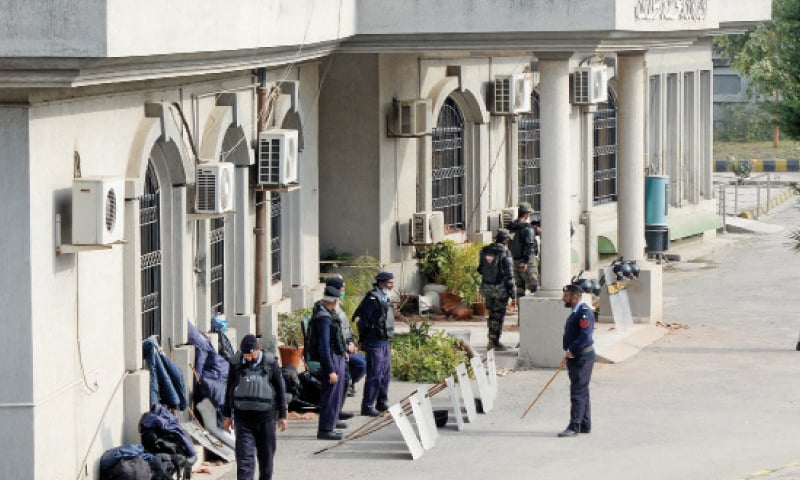PTBP Web Desk
The Islamabad High Court (IHC) has granted conditional relief to M/s Universal Service Fund Company, a state-owned enterprise (SOE), enabling it to pursue resolution of its tax-related disputes through the Federal Board of Revenue’s (FBR) dispute resolution committee. This ruling marks a pivotal moment in how tax disputes involving SOEs might be approached in Pakistan, emphasizing the use of alternative dispute resolution mechanisms.
The case came to light after the SOE faced a tax liability of Rs6,080,396 as determined by an order from the Assistant/Deputy Commissioner, Inland Revenue, dated June 29, 2024. The dispute arose over this assessment, leading to an appeal by the SOE before the Commissioner (Appeals). However, the appeal process encountered several hurdles, including a refusal by the Appellate Tribunal Inland Revenue (ATIR) to register the appeal, which was then directed back to the Commissioner (Appeals).
In response to the complex situation, the IHC issued an order that outlines specific conditions under which the SOE can proceed:
Formation of a Dispute Resolution Committee: The court order mandates that if the SOE applies to the FBR under Section 134A of the Income Tax Ordinance for the appointment of a dispute resolution committee, the appeal against the tax order would be deemed pending before the Commissioner (Appeals).
Timeframe for Resolution: Should this committee fail to resolve the dispute within sixty days, it would be dissolved by the FBR, thereby allowing the SOE to continue its appeal before the Commissioner (Appeals). The Commissioner would then decide on both the maintainability and merits of the appeal.
Legal Framework: The IHC emphasized that Section 134A has an overriding effect due to its non-obstante clause, providing SOEs with a direct path to dispute resolution, regardless of the dispute’s monetary value.
This ruling is particularly significant for state-owned enterprises in Pakistan, as it clarifies and reinforces their legal rights under the tax laws. It ensures that SOEs have access to an expedited resolution process for tax disputes, potentially saving time and resources that would otherwise be spent in prolonged legal battles.
The FBR was represented by advocate Osama Shahid, while the counsel for the SOE admitted that no formal application had yet been made to the FBR for committee formation. This admission underscores the procedural aspects that SOEs must follow to avail themselves of this relief.
The IHC’s decision also highlights the intersection between judicial oversight and fiscal policy. By setting clear guidelines on how SOEs should handle tax disputes, it aligns judicial practice with legislative intent, aiming for a more efficient tax dispute resolution system. This could lead to broader implications for how tax disputes are managed, potentially encouraging more SOEs to opt for this route when facing similar issues.




